How to soundproof a garden - 7 ways to block out the noise
Stuck with noisy neighbours? Busy road ruining your garden tranquillity? Here’s some effective ways to shut out the sounds

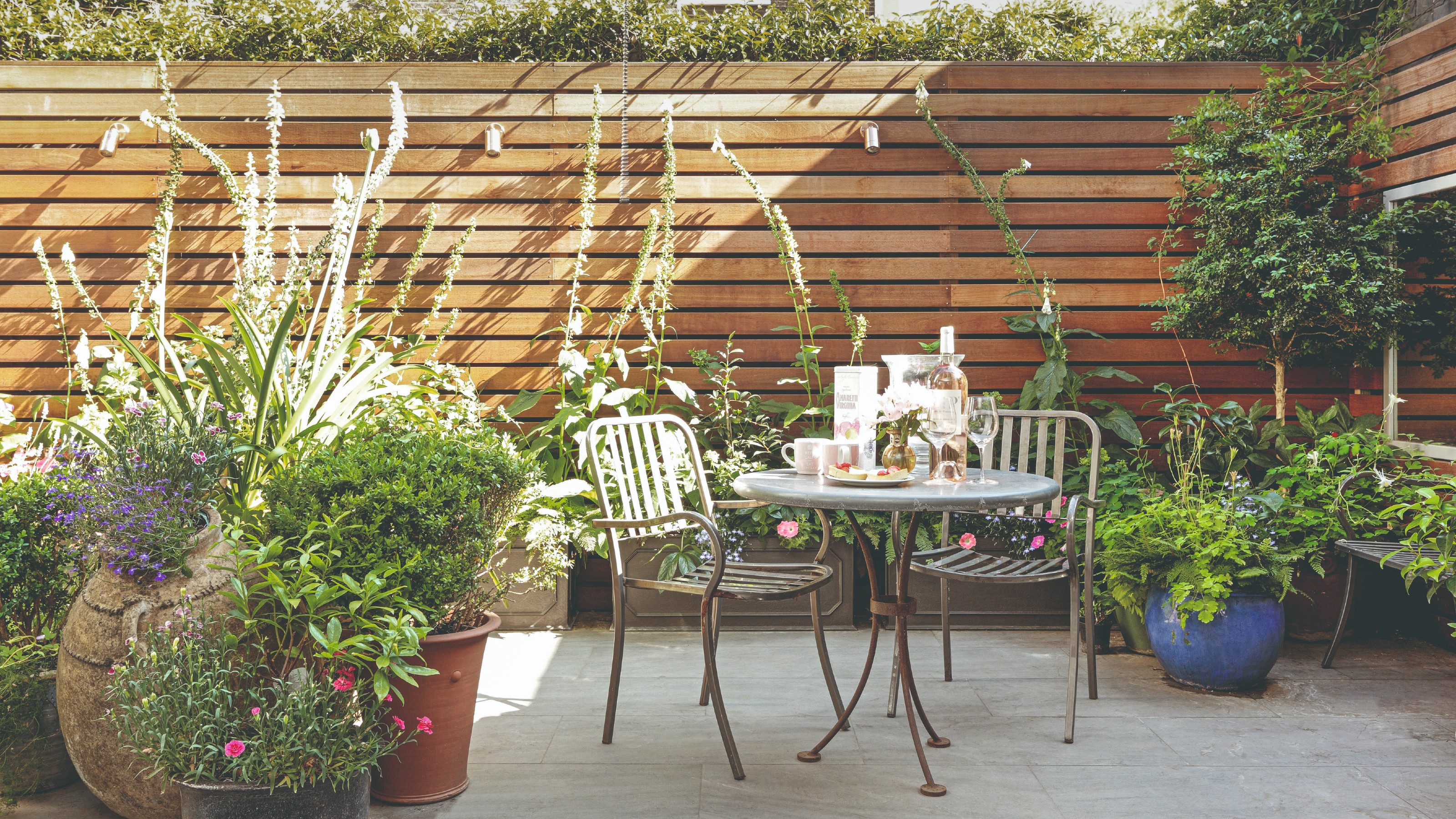

Sign up to our newsletter for style inspiration, real homes, project and garden advice and shopping know-how
You are now subscribed
Your newsletter sign-up was successful
When it comes to your garden the first thing that comes to mind is making your outdoor living space as attractive as can be. What’s often forgotten though is how the right techniques can help soundproof your garden, and in turn, make it the relaxing and calm space we all dream about.
After all, we’ve all been there; exasperated and frustrated at having spent so much time and money on making your garden ideas look beautiful, only to have it ruined by the constant rumbling of passing cars or the late-night partying of those new neighbours.
In this guide, we’ll break down everything you need to know about soundproofing your garden, from tackling particular noise issues to the insider tricks that will help allow you to enjoy your outdoor seating ideas in peace.
Is it possible to soundproof a garden ?
Yes, to a degree. Complete soundproofing is difficult, especially in this day and age where completely remote areas are few and far between. There will likely always be some noise that bleeds into your garden space, whether it be the road outside or the garden next to yours. But it can be done…
Some gardens are naturally more soundproof, such as a wooded garden or a courtyard garden, while a balcony in a busy block of flats is going to suffer more from noise pollution. Often, a single layer of noise protection just isn't enough so you might have to incorporate a few of the tips below to hear a real difference.
How to soundproof a garden
To help you shut out the noise effectively, we ask three garden landscaping experts for their top tips on how to soundproof a garden. As previously discussed, there’s no way to completely shut out some sounds – unless you have a pair of heavy-duty earplugs to hand – but there is still a lot that can be done to help you bring a sense of calm to even the noisiest of spaces.
1. Create a sound barrier
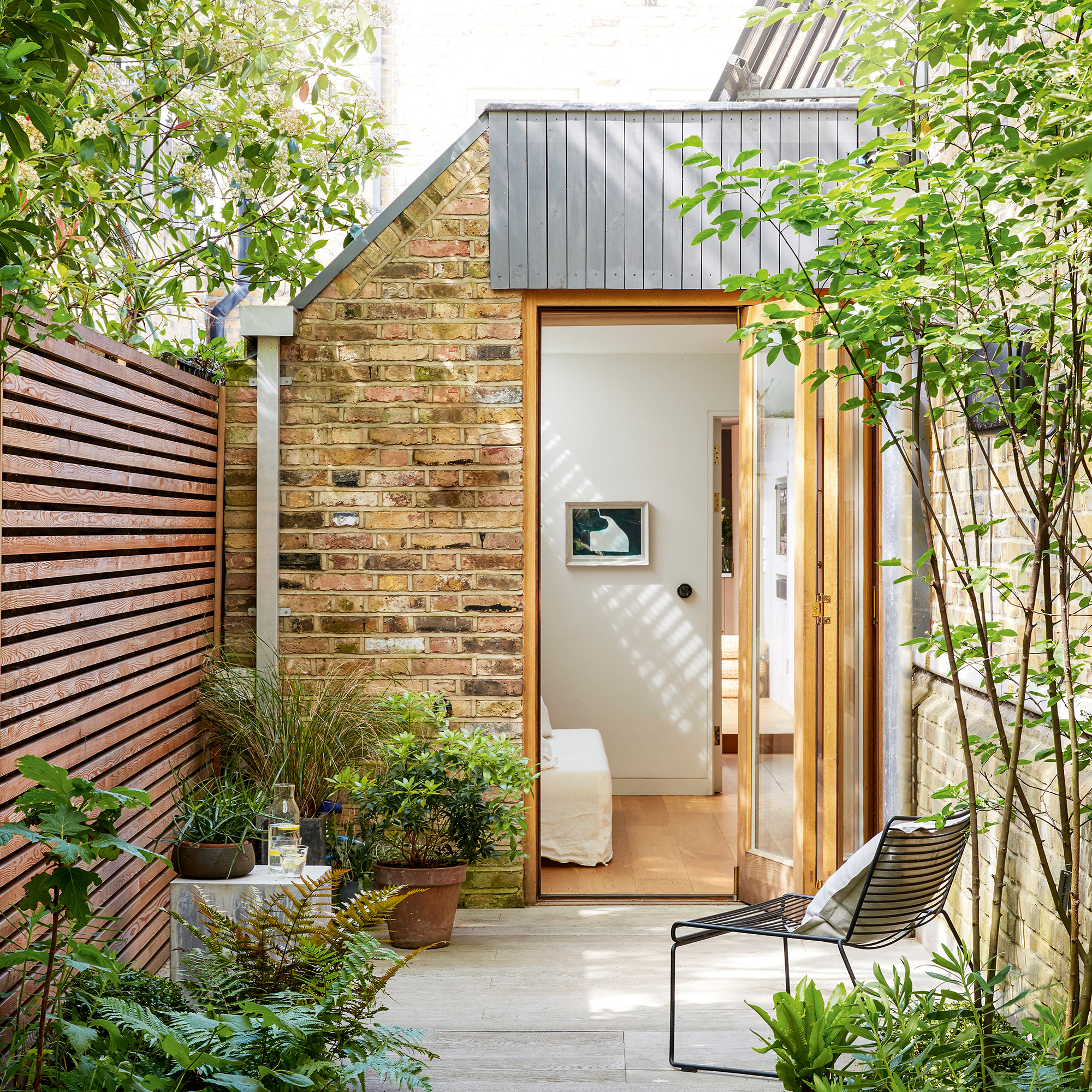
It’s the most obvious and arguably the most effective. Adding a solid garden fence idea or wall around your garden is a great way of soundproofing a back garden, while adding some welcome privacy.
Sign up to our newsletter for style inspiration, real homes, project and garden advice and shopping know-how
'It’s best to opt for materials such as brick, concrete, or dense timber, as they effectively block sound waves,' says Robert Quinton, landscape gardening expert and owner of Construction Megastore.
'It can also be effective if you incorporate sound-absorbing materials into the barrier, such as acoustic panels or dense vegetation like ivy, to further dampen noise.'
2. Be strategic with shrubbery
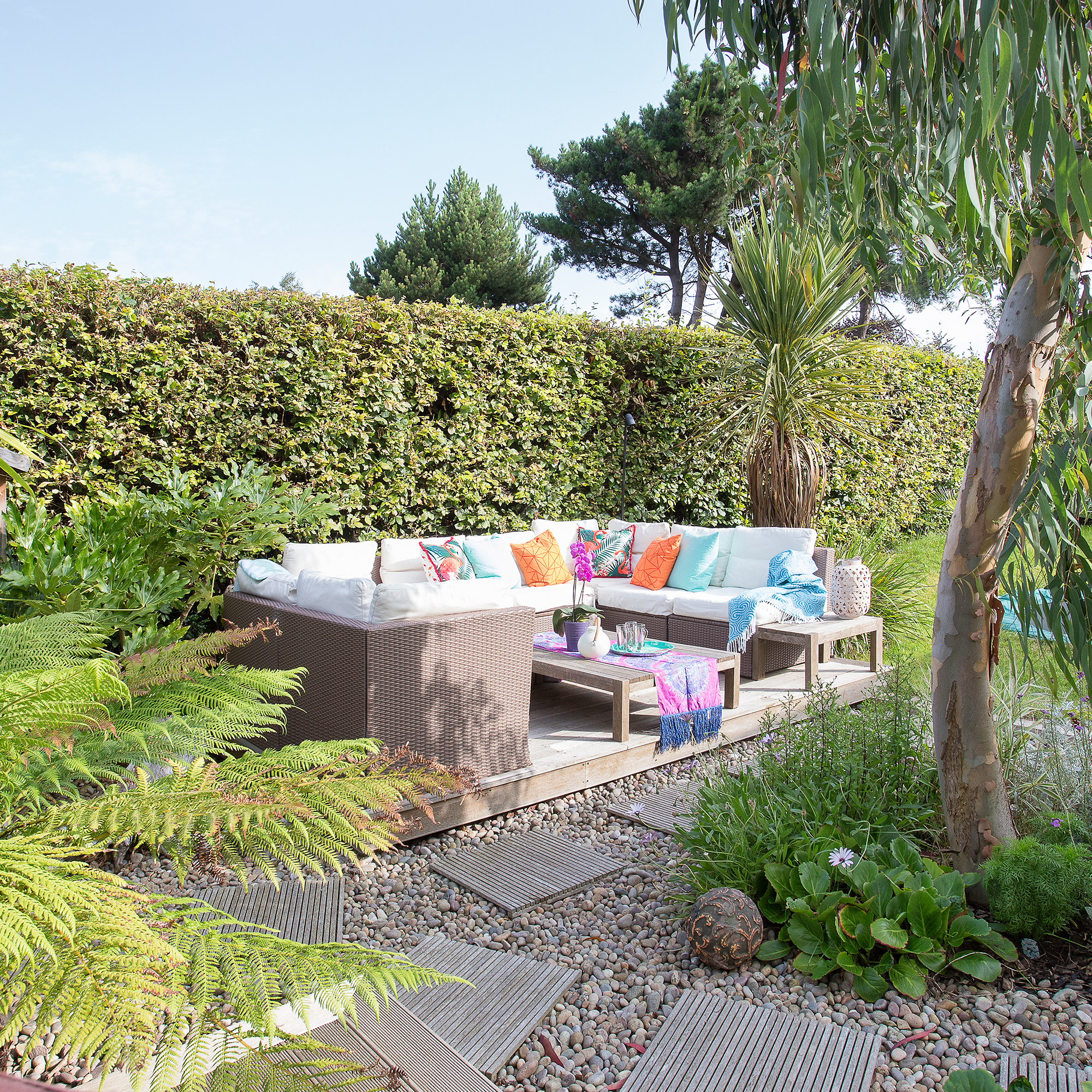
Ivy around your fencing is a good start, but there are many other ways garden hedges and shrubbery can be used to help soundproof a garden, says Tom Clifford, director of Gardenstone, a leading garden landscaping supplier.
'Strategically placed shrubbery, hedges and bushes are an effective method for softening the level of noise in your garden. Although shrubbery isn't thick enough to completely block noise it can muffle sound to a level that is barely noticeable.
‘However, this method requires regular maintenance as when greenery grows out of control it can leave your garden looking messy and unkempt. For the best results I recommend making sure your shrubbery is as thick and dense as possible. Boxwood hedging is a particularly good choice due to its dense structure'.
3. Use sound-absorbing materials
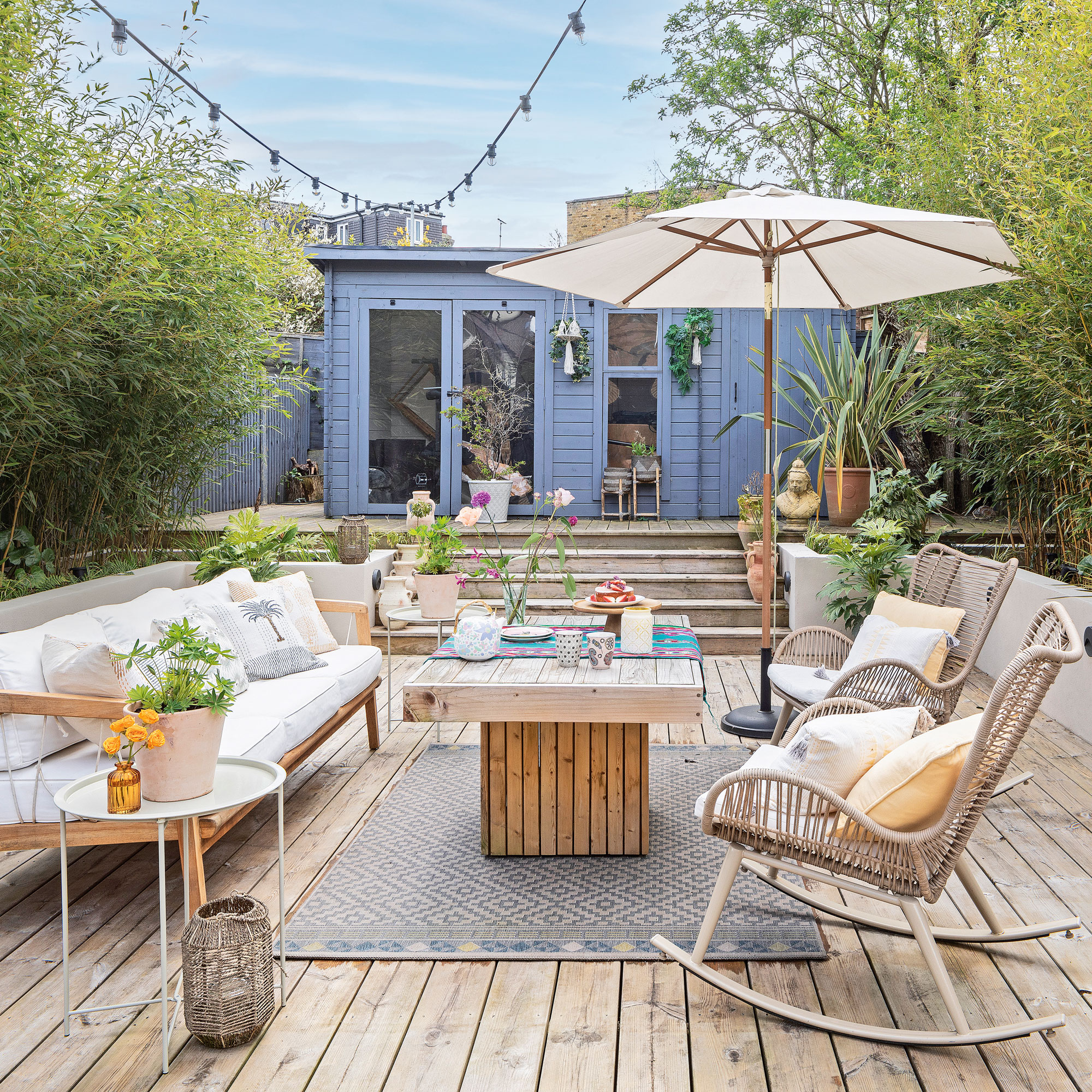
Just as inside your home, picking out sound absorbing materials is a great way to dampen sounds and create a more relaxed space. ‘It can help minimise noise reflections and reverberations’, agrees Robert.
'Soft surfaces like dense foliage or plush outdoor rugs can absorb sound waves, reducing their impact on your outdoor space.'
4. Install metal screens

Metal screens can prove invaluable if you’re garden is particularly open to the elements. As well as soundproofing, they are a handy garden screening ideas that will also provide a striking visual feature. You can pick metal screens up on Amazon, or at many garden centres.
'These screens come in a range of different colours, patterns and textures, so they’re sure to bring some originality to your space,' says Tom.
'For the best soundproofing results I recommend choosing a design with as few gaps as possible. If you don't want to place metal screens around the entirety of your garden you can use metal sheets to create a small private area for relaxing. This will create privacy from onlookers while doubling the soundproofing within your garden'.
5. Put in a water feature
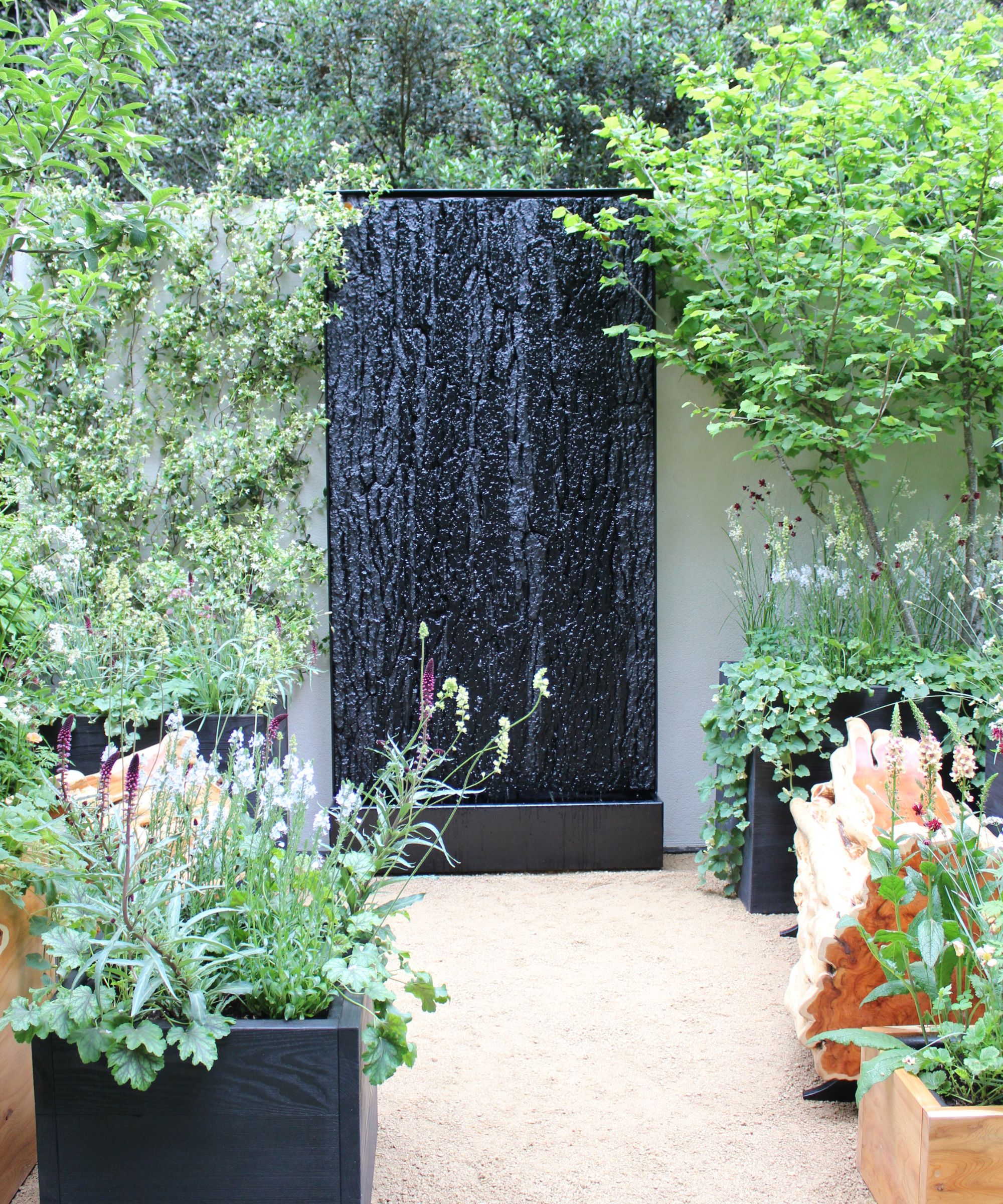
Still having trouble with sounds creeping in through the fencing, metal screens and shrubs? Well, if you can’t completely soundproof your garden, the next best thing is to mask the noises that you don’t want to hear.
'The sound of flowing water is often thought of as one of the most relaxing noises you can hear, and it can help create a tranquil atmosphere in your garden,' says Robert. 'Therefore, consider installing a water feature idea such as a fountain, pond, or waterfall feature, and try to place this strategically so it acts as a natural sound barrier.
'The gentle rippling of water not only adds to the ambiance but also helps drown out external disturbances.'
6. Add background sounds
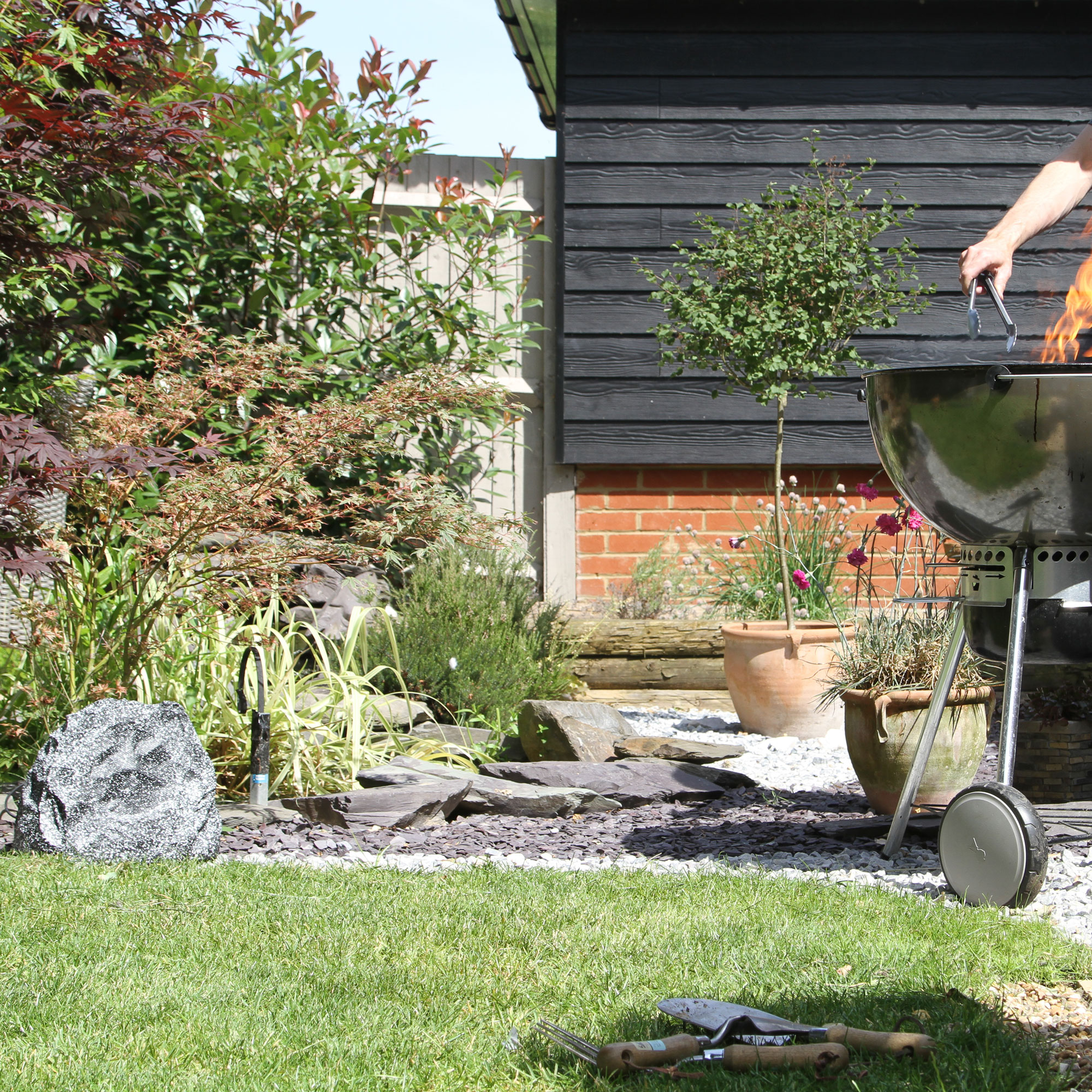
But what if you’re struggling for space and can’t fit a full-size waterfall feature into your backyard? Well, while it might not be nearly as exciting, a pair of speakers can still help recreate the effect. Lithe Audio's Rock Bluetooth speakers pictured above look like cute grey boulders in your garden.
'A great possibility is to introduce background noise elements like wind chimes, rustling leaves, or gentle music to mask undesirable sounds,' says gardening and plant expert at Fantastic Gardeners, Nadezhda Yaneva. 'The optimal solution is to experiment with different audio sources to find what works best for your garden setting.'
7. Change layout

It might seem obvious, but positioning your main garden living spaces away from the noise is an easily overlooked strategy when designing a garden space.
Nadezhda recommends putting 'seating areas, relaxation spots, and entertaining spaces away from noisy neighbours or traffic routes' to maximise the effectiveness of your soundproofing. This can work particularly well if you have a long but narrow plot, as you’ll likely find it is a lot quieter away from the houses at the bottom end of your garden.
FAQs
How do I stop neighbours noise in my garden?
Well, a bit of neighbourly diplomacy is a good way to kick things off so go over and ask nicely if noise levels can be kept down. If that’s not an option, or the noise is still coming through, then don’t worry – you have options.
'There are a couple of productive methods you can implement yourself without the help of your neighbours,' says Robert. 'Installing sound-absorbing panels or adding dense vegetation along the property line will help to reduce the noise pollution affecting your garden and help muffle the sound of your neighbours.'
How do I stop traffic noise in my garden?
While noise from neighbours is usually low level – unless it’s a 24/7 party next door – traffic noise can be a bit more intrusive, so you might need to step things up.
'A brick wall is the best choice for blocking traffic noise as its dense structure provides the most effective barrier to sound within a garden,' says Tom. 'Although costly these structures are highly durable so they will work effectively to block sound in your garden for years.
‘However, brick walls are classed as permanent structures which means that they could require planning permission, so before installing a wall in your garden make sure to check with your local authority. The higher the wall the more sound it will block so I recommend that your wall is two metres tall, unless your garden backs directly onto a road and then it should be a maximum of one metre.’

Richard is a writer, editor and content strategist, who has bylines with The Telegraph, The Independent, and The Evening Standard, as well as work with brands such as Marks & Spencer, Reiss, and Huel. He takes pride in his ability to craft engaging reads on pretty much any topic imaginable, while specialising in health and wellness content. He's especially interested in sleep, and how important it is for overall health.


